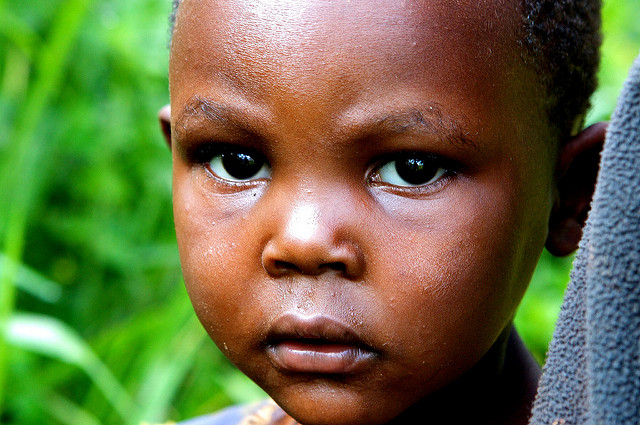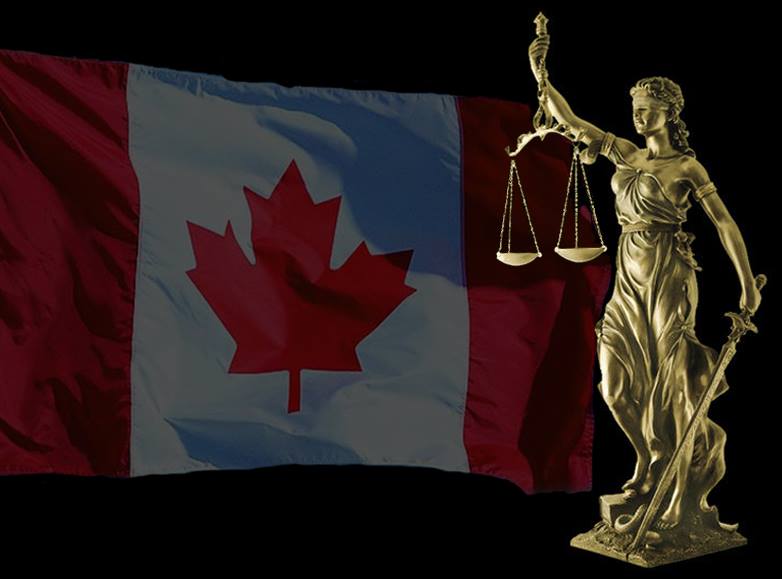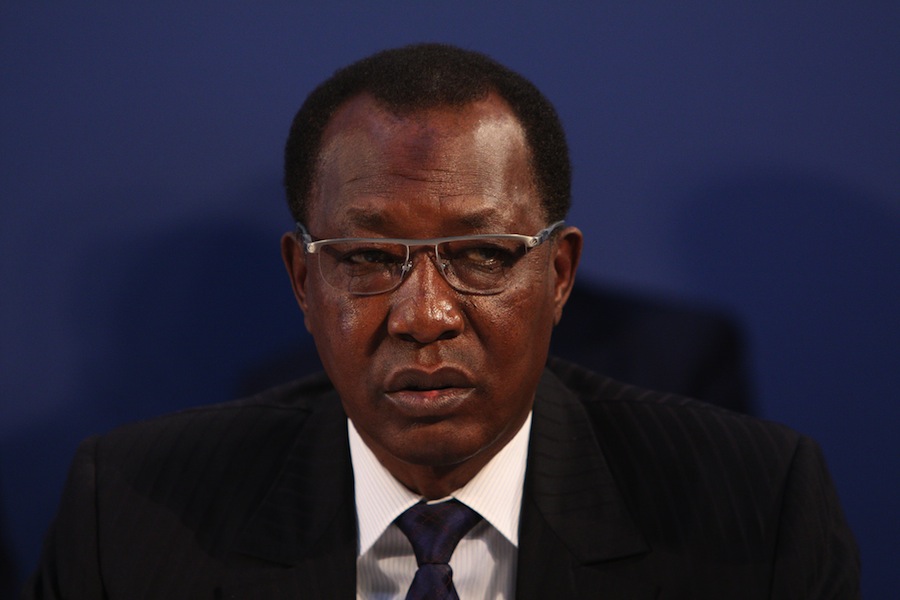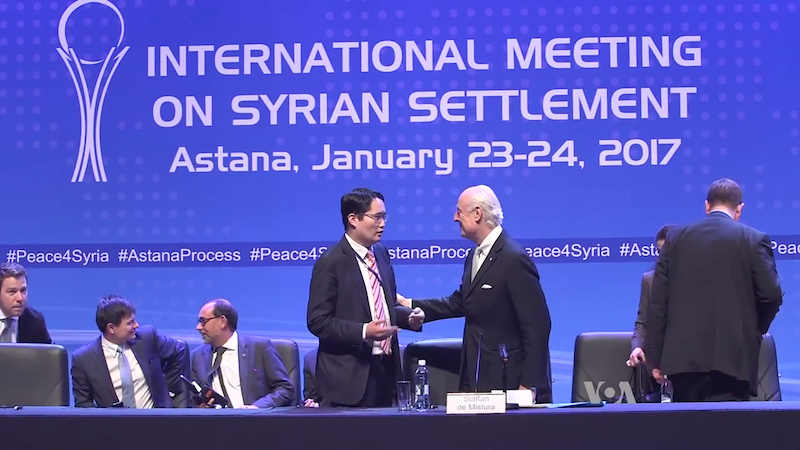On 16 January 2017, the International Criminal Court (ICC) resumed the trial of Dominic Ongwen, a former child soldier turned senior commander of the Lord’s Resistance Army (LRA) in Uganda. Ongwen is charged with 70 counts of war crimes and crimes against humanity including but not limited to: mass killings, torture, rape, sexual enslavement, inhumane acts of inflicting serious bodily injury and suffering, child abduction, and use of child soldiers, all of which were committed during attacks on four internally displaced persons camps. Charges also include acts of sexual and gender based violence (such as forced marriage and pregnancy), and conscription of child soldiers from 2002 to 2005. The trial is particularly significant as Ongwen is the first high-ranking LRA commander prosecuted by the ICC, and the first to be tried for crimes that he has been both victim and perpetrator of.
The LRA, founded and led by ‘cult-like’ warlord Joseph Kony, is a quasi-religious rebel group originating from Uganda in the 1980s. It currently operates across the Central African Republic (CAR), Democratic Republic of Congo (DRC), South Sudan, and Uganda. Members are known to abduct and indoctrinate children to support brutal campaigns of sexual violence, torture, mutilation, and murder. At the age of 10, Ongwen was abducted on his way home from school and conscripted into the LRA. Since then, he has been brought up in an environment that taught him committing brutalities against others were his only way to survive. Indeed, the extent to which Ongwen has been a victim has raised questions about how much that mitigates his status as a perpetrator.
Opinions have been divided on the prosecution of Ongwen whose status as victim-perpetrator blurs the usual polarization of this dichotomy. Criminal law is designed to elicit whether the defendant is definitively guilty or not, and the prosecution remains firm that Ongwen is standing trial for crimes committed as an adult rather than a child. However, the complexities of his background, and indeed of other child soldiers both present and former, cannot be ignored. The ICC has an opportunity in this case to broaden the discussion on child soldiers beyond simple divisions between victim and perpetrator, guilt and innocence, child and adult.
As children, child soldiers are often considered innocent under international law. However, when they are forced to commit atrocities as a method of survival, the moral divides between guilt and innocence becomes blurred. The LRA uses psychological control; one of their most effective methods includes teaching children that violence is necessary to survive, and that their obedience committing crimes will lead to great material and symbolic gain (such as food, protection, increased rank and along with it, wealth, power, and women). They force children to maim, kill, and rape family or community members, thereby preventing the children from being able to return home and forcing them to rely on the rebels for survival. The LRA also incites fear through public punishment. Children who refuse to follow orders or attempt to escape are publically beaten or killed, sometimes by other children who share their tribe or ethnic identity thereby furthering indoctrination.
Ongwen’s defence has argued that due to this, Ongwen has been psychologically scarred and socially affected. Unable to return to his community and living his life constantly under threat of imminent death or harm (the latter claim is outlined in article 31(1)(d) of the Rome Statute), the defence questions the expectation for Ongwen to leave post-indoctrination into the LRA:
“…allowing a case such as Dominic’s to proceed would be akin to endorsing an approach which imposes an additional requirement not found in customary international law; namely, that once a child soldier turns 15 years old, he or she has the obligation to release him or herself or escape – even where this would put his or her life at stake – or face the possibility of prosecution before international fora such as this Court.” (Section 5(A), para. 40).
The defence also argued that, pursuant to the precedent set in the Lubanga case, being a child soldier is an ongoing identity that renders child soldiers permanently damaged victims. They further emphasized that the failure of international humanitarian law to protect Ongwen as a child soldier, cannot now be justifiably used against him. These arguments were eventually disregarded by the judges as legitimate reasons for case dismissal, although they do merit further attention and discussion within the ICC as they highlight the true complexity of Ongwen’s situation and the extent of a child soldier’s agency. The ICC has received criticism, both in Uganda and internationally, for prosecuting Ongwen with seemingly little regard for mitigating circumstances. Some people (including LRA victims and former commanders who grew up like Ongwen) consider Ongwen like any other former child soldier who should be granted amnesty and forgiveness. Only then can these communities begin to heal. They believe that to place the onus of the conflict on him would be to ignore the Ugandan government’s own role in the conflict and their own crimes against civilians.
On the other hand, absolving Ongwen of criminal responsibility due to his former child soldier status does a disservice to the victims of his crimes committed as an adult. Many want to see justice and accountability prevail, especially in as high a court as the ICC. To excuse Ongwen as ‘damaged for life’ would set a precedent for other former child soldiers to follow in Ongwen’s steps with the knowledge they won’t be prosecuted for it. In international criminal law, as in domestic criminal law, individual action with intent to commit is at question and not the factors leading up to it. As the trial continues, over 4,000 victims will testify to Ongwen’s enthusiastic participation under Kony’s orders to execute LRA offensives and pillage communities, commit rape, frequently abduct children for use as child soldiers, personally distribute women and girls to his subordinates, force abductees to kill, and instruct subordinates to kill or beat others into submission.
For many, seeing Ongwen at the ICC is a victorious move that reassures victims justice will be done. Indeed, it probably will be done, but the complexities of the case and the question of agency should not be so easily dismissed in the broader discussion on culpability of child soldiers, and of what the international community must do with the thousands of other current and future Dominic Ongwens still fighting today.
Photo: “Ugandan Child” (2008), by Robin Dusek via Flickr. Licensed under CC BY 2.0.
Disclaimer: Any views or opinions expressed in articles are solely those of the authors and do not necessarily represent the views of the NATO Association of Canada.




